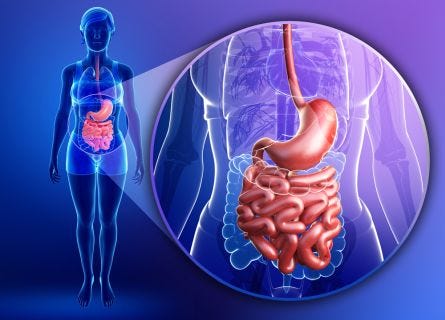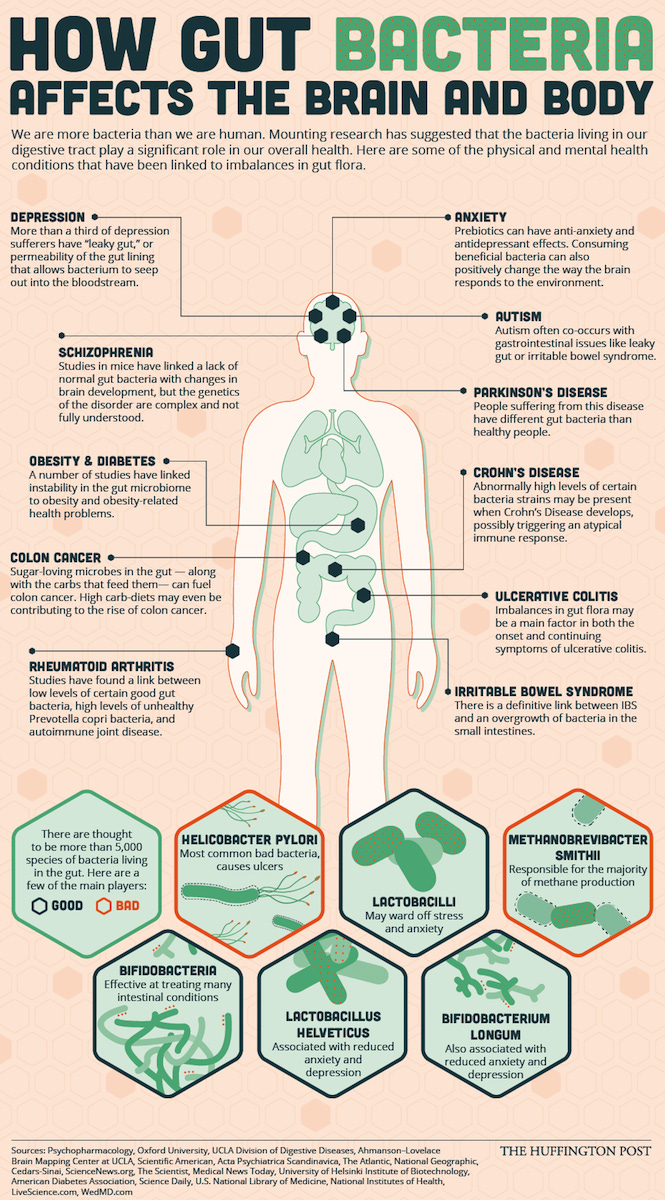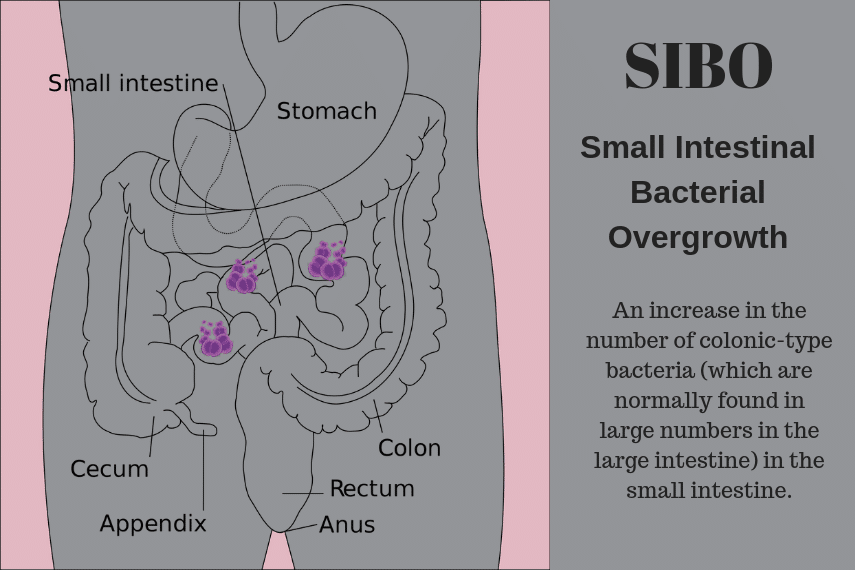
Small intestinal bacterial overgrowth (SIBO) can be defined as the excessive increase in the number of bacteria in the stomach and small intestine (Khalighi et al., 2014). Such overgrowth can lead to gastrointestinal problems, altered bowel movements, and altered pH. Moreover, SIBO can induce steatorrhoea (excess fat in feces), vitamin B12 (involved in brain/nervous system function, and development of red blood cells) absorptive impairment, and also injury to the small intestinal microvilli causing malabsorption (Khalighi et al., 2014). Having considered SIBO, the following will explore probiotics, their relationship to the condition, and their affects upon gut dysbiosis.

Probiotics are microorganisms that share a symbiotic relationship with the gastrointestinal tract. Such microorganisms help prevent diseases (i.e., antibiotic- associated diarrhea, and inflammatory bowel disease), enhance epithelial barrier function, and help control the immune system function (Khalighi et al., 2014). Hence, probiotics are a necessary constituent of the gastrointestinal tract. One particular probiotic, lactol, was considered with regards to its ability to alter SIBO-related symptoms (chronic stomach pain and defecation changes). The following sections will consider lactol after aggressive antibiotic use.

Khalighi et al. (2014) conducted a randomized double blind control trial with 30 subjects (15 males and 15 females, 21-80 years of age) who tested positive for SIBO and the aforementioned symptoms. The experimental group received a lactol probiotic, and the control group received a placebo. Each group underwent 3-weeks of aggressive antibiotic therapy. Following said therapy, the experimental group ingested antibiotics for the first half of each month, followed by lactol probiotics the remaining half of each month. The control group ingested antibiotics for the first half of each month and a placebo for the last half of each month. The experiment continued in such a way for 6 months before SIBO symptoms were evaluated. Results indicated a complete resolution of symptoms (stomach pain) and a significant reduction in bloating, belching, and diarrhoea in the experimental group. However, only 50% of the cases in the control group reported disappearance of stomach pain (Khalighi et al., 2014).
In conclusion, SIBO does not have to be a condition that one should cope with and endure; evidence suggests the influential role of probiotics in mitigating gut dysbiosis and pain, even in the presence of antibiotic use; a known disruptor of intestinal homeostasis.
References
Khalighi, A. R., Khalighi, M. R., Behdani, R., Jamali, J., Khosravi, A., Kouhestani, S., … Khalighi, N. (2014). Evaluating the efficacy of probiotic treatments in patients with small intestinal bacterial overgrowth (SIBO)- A pilot study. Indian Journal of Medical Research, 140(5), 604-608.
-Michael McIsaac
